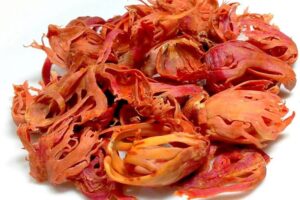Cinnamon Trade: Kerala's Fragrant Gold
Nestled in the lush greenery of Kerala, India, the cinnamon trade has been a cornerstone of the region’s rich spice heritage. Kerala’s ideal tropical climate and fertile soil make it a prime location for cultivating high-quality cinnamon, contributing significantly to the global spice market. For centuries, Kerala has been synonymous with the spice trade, and cinnamon remains one of its most treasured exports.
The Kerala Advantage
Kerala’s cinnamon is renowned for its distinctive aroma and superior quality. The state’s long-standing expertise in spice cultivation, combined with sustainable farming practices, ensures that the cinnamon produced meets international standards. Farmers in Kerala employ traditional methods passed down through generations, ensuring that the natural essence of cinnamon is preserved from cultivation to harvest.
Beyond its quality, Kerala’s geographical position along the Malabar Coast provides easy access to international shipping routes, enhancing export efficiency. This logistical advantage makes Kerala a preferred partner for global spice importers.
The Historical Significance of Cinnamon
Cinnamon has played a vital role in Kerala’s history, with references to its trade dating back to ancient times. Merchants from the Middle East, Europe, and Asia were drawn to Kerala’s ports to obtain this prized spice. Known as “liquid gold,” cinnamon was highly valued for its medicinal properties, culinary uses, and as a key component in ancient rituals and embalming practices.
Global Demand and Export
Cinnamon is a highly sought-after spice across international markets, driven by its culinary, medicinal, and cosmetic applications. The demand for organic and ethically sourced cinnamon continues to rise, opening doors for exporters in Kerala to expand their footprint globally. Key markets include the United States, Europe, the Middle East, and Asia.
The global spice industry is witnessing a surge in consumer preference for natural and organic products, providing Kerala’s cinnamon producers with an excellent opportunity to grow their market share. Kerala’s exporters have started capitalizing on this trend by offering premium, chemical-free cinnamon that meets stringent international quality standards.
Health and Economic Benefits
Cinnamon from Kerala not only boosts the local economy but also offers extensive health benefits. Rich in antioxidants, it aids in reducing inflammation, regulating blood sugar, and enhancing overall well-being. Studies have shown that regular consumption of cinnamon can help improve cardiovascular health, fight bacterial infections, and even enhance cognitive function.
These health benefits contribute to cinnamon’s popularity in the pharmaceutical and wellness industries, further driving demand. Cinnamon’s economic impact extends to providing livelihoods for thousands of small farmers and workers involved in the spice trade, fostering rural development and economic resilience in Kerala.
Sustainable and Ethical Practices
Kerala’s cinnamon farmers are increasingly adopting sustainable practices to meet the growing global demand for environmentally friendly products. By using organic fertilizers, minimizing chemical inputs, and promoting biodiversity, Kerala’s spice industry is setting a benchmark for sustainable agriculture.
Fair trade practices are also gaining momentum, ensuring that farmers receive fair compensation for their labor and that the local communities benefit from the spice trade. This ethical approach adds significant value to Kerala’s cinnamon, making it attractive to conscious consumers worldwide.
Trade Opportunities
For importers and exporters, partnering with Kerala’s cinnamon producers offers a gateway to premium-quality spices. Companies can leverage Kerala’s robust supply chain and long history of spice trade to ensure a steady flow of this valuable commodity. Additionally, the government of Kerala is investing in infrastructure and technology to support the spice trade, creating new opportunities for expansion.
By fostering connections with local spice cooperatives and farmer groups, international businesses can secure a reliable source of high-quality cinnamon while contributing to the economic development of Kerala’s rural communities.
Conclusion
Kerala’s cinnamon stands as a testament to the region’s spice legacy. By investing in and promoting this golden spice, traders can not only drive profits but also contribute to preserving the cultural and agricultural wealth of the region. As the world increasingly turns to natural, healthy products, Kerala’s cinnamon is well-positioned to remain a prized commodity in the global spice market for years to come.




